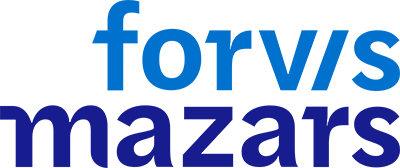2025 AML/CFT (BSA) Compliance Update

To order an electronic manual, please click here.
Electronic Item No: EM-BSA
Price: $210/$180
The Treasury Department continues to rely on financial institutions to serve as the “front-line gatekeepers” for law enforcement efforts to safeguard the U.S. financial system from the abuses of financial crimes, including money laundering and terrorist financing. The federal regulatory agencies continue to rely on financial institutions to take “every reasonable step” to identify, minimize, and manage any risks that illicit financial activity may pose to the individual institution and to the industry. Ongoing initiatives by the Financial Crimes Enforcement Network (FinCEN) and the continued expansions in the federal examination procedures reinforce the need to have a strong BSA program at your institution. This manual covers the major issues and opportunities in the ever-expanding environment of the Bank Secrecy Act.
This manual highlights the increased federal expectations for BSA. Customer/Member Due Diligence IS the focus in this, the 50th Year of BSA compliance, with the major emphasis being on Suspicious Activity Reporting. The latest guidelines on account management, ongoing monitoring, and due diligence expectations for Money Services Businesses (MSB), Third-Party Payment Processors (TPPP), Marijuana Related Enterprises (MRE), and other “High-Risk” Clients are highlighted, while the ever increasing issue of “de-risking”/client “re-evaluation” is discussed. Institutional risk assessments and the latest guidance on high-risk products and services, trafficking of fentanyl and other synthetic opioids, convertible virtual currencies, cyber events and cyber-related crime, e-mail compromise fraud schemes, human trafficking and human smuggling, elder and vulnerable adult exploitation, and disaster-related fraud are reviewed.
Suspicious activity reporting and the most recent guidance from Treasury on proper Suspicious Activity Report completion are discussed. The impacts to financial institutions from the federal BSA examination procedures are identified. The regulations affecting financial institutions from the Office of Foreign Asset Control (OFAC) are highlighted and the new Sanctions Compliance Program (SCP) framework is discussed. Suspicious transactions, terrorist financing, and other money laundering techniques are also reviewed.
Currency Transaction Reporting (CTR), Exemptions from CTR reporting, Customer/Member Identification (CIP) requirements, foreign correspondent banking and private banking account management, SAR reporting requirements for insurance affiliates, record retention requirements, and the evolution of BSA are documented in detail. The manual assists financial institutions in meeting the annual training requirements imposed by the BSA regulations, and provides attendees the opportunity to network with other professionals interested in BSA compliance.
TOPICS
- Anti-Money Laundering Act (AMLA) 2020 and Corporate Transparency Act Implementations
- Beneficial Ownership Modifications – Expected to be Released
- Customer/Member Due Diligence
- Suspicious Activity Reporting (SAR) – Latest Trends and Rulings
- Money Services Businesses (MSB), Hemp and Marijuana-Related Enterprises (HRE/MRE), Convertible Virtual Currencies (CVC), and Other “High-Risk” Clients
- Risk Assessments
- Examination Procedures – Latest Updates
- OFAC Compliance – Sanctions Compliance Program (SCP)
- Money Laundering Techniques and Suspicious Transactions
DOCUMENTATION COVERING
- Currency Transaction Reporting
- CTR Exemption Opportunities
- Customer/Member Identification (CIP)
- Foreign Correspondent Bank and Private Banking EDD
- Information Sharing 314a and 314b
- SAR for Insurance Affiliates
- Record Retention Requirements
- Information Sources
- BSA ” Evolution” and “Lessons” from BSA Enforcement Actions

